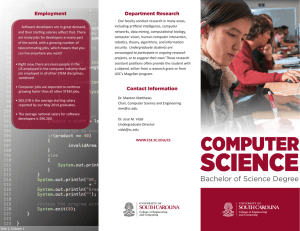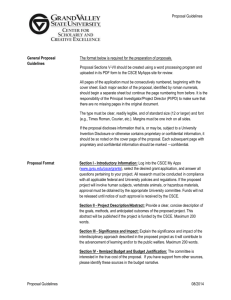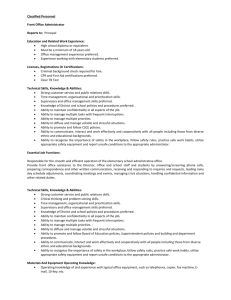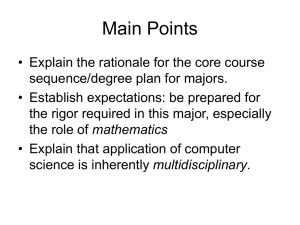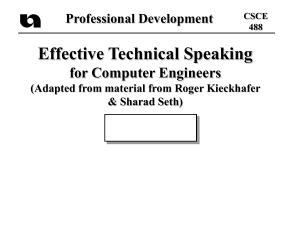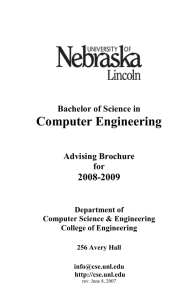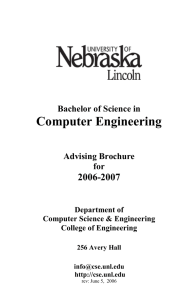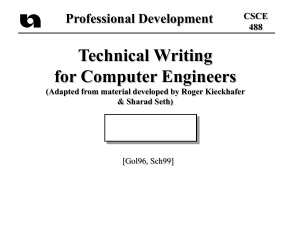Employment Department Research
advertisement
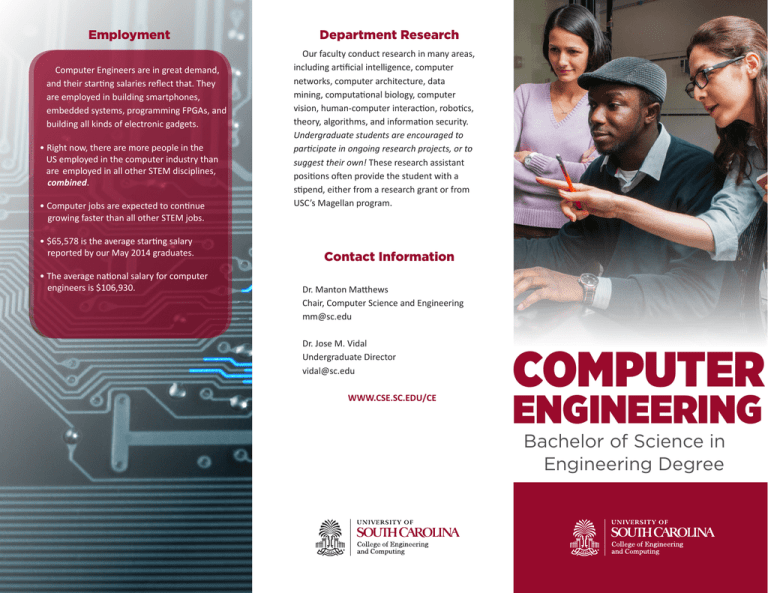
Employment Computer Engineers are in great demand, and their starting salaries reflect that. They are employed in building smartphones, embedded systems, programming FPGAs, and building all kinds of electronic gadgets. • Right now, there are more people in the US employed in the computer industry than are employed in all other STEM disciplines, combined. • Computer jobs are expected to continue growing faster than all other STEM jobs. • $65,578 is the average starting salary reported by our May 2014 graduates. • The average national salary for computer engineers is $106,930. Department Research Our faculty conduct research in many areas, including artificial intelligence, computer networks, computer architecture, data mining, computational biology, computer vision, human-computer interaction, robotics, theory, algorithms, and information security. Undergraduate students are encouraged to participate in ongoing research projects, or to suggest their own! These research assistant positions often provide the student with a stipend, either from a research grant or from USC’s Magellan program. Contact Information Dr. Manton Matthews Chair, Computer Science and Engineering mm@sc.edu Dr. Jose M. Vidal Undergraduate Director vidal@sc.edu WWW.CSE.SC.EDU/CE COMPUTER ENGINEERING Bachelor of Science in Engineering Degree ////////////// ///////////// WHAT IS COMPUTER ENGINEERING? Why Computer Engineering? Computers have become ubiquitous in business, education, and research settings. There is scarcely any area of human endeavors that does not use computers. Thus, the ability to build computer hardware and systems, as well as program low-level device drivers is in great demand. Our Computer Engineering Bachelor of Science in Engineering degree will provide you with all the training and knowledge needed to start a successful career in computer engineering. Project-based Learning Our curriculum emphasizes project-based learning. Small team projects are required in most classes. These culminate in the two-semester Capstone project class where students form teams and meet with a client, gather requirements, design, implement, test and deploy a software or hardware project. ////////// ///////// Programming Foundation You will start learning programming and algorithmic design with your first class, CSCE 145. This laboratory course teaches the Java programming language using eclipse, the industry-standard Integrated Development Environment. We offer twice-weekly laboratory classes and lectures, along with frequent assignments so you learn to code by getting lots of practice. The labs are always manned by our Teaching Assistants and faculty, so you will receive personal help whenever you need it. CSCE 146, CSCE 240, CSCE 350 and several other programming classes will follow in the next semesters. These courses delve deeper into data structures and algorithms, software techniques, and programming languages. Undergraduate Research We offer ample opportunities for undergraduates to become involved in the faculty’s ongoing research projects. You will find many different active research topics: cybersecurity, robotics, artificial intelligence, bioinformatics, networks, computer vision, and others. Electronic Circuits Foundation Sophomore year introduces digital logic design in CSCE 211, and computer architechture in 212, as well as electrical circuits in ELCT 102 and 221. These are hands-on laboratory classes where you not only learn the theory behind building analog and digital circuits but also get to build them in our labs! Later, ELCT 222 teaches you about signals and systems and ELCT 371 covers electronics in greater depth. A Computer Engineer knows both how to build and how to program computers. Upper-Level Electives Our degree lets you choose three difference upper-level elective classes which you can use to customize your degree, perhaps to specialize in a particular area of interest. We offer electives that cover many topics, including computer networks, information security, parallel computing, robotics, computer architecture, and artificial intelligence.
